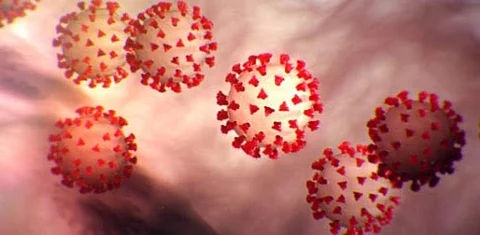

The novel coronavirus can infect and replicate in cells that line the inside of the human intestines, according to a study that could explain why some patients with COVID-19 experience gastrointestinal symptoms.
The finding, published in the journal Science, shows that the intestines are a target organ for the SARS-CoV-2 virus. Studies have shown that the virus enters epithelial cells in the lungs by exploiting an enzyme called ACE2, allowing it to replicate and spread further, according to the researchers, including those from Erasmus Medical Center in the Netherlands.
The ensuing damage results in some of the respiratory symptoms that COVID-19 is known for, which can range from coughing and shortness of breath to pneumonia in more severe cases, they said. The researchers noted that preliminary observations suggest that the virus may also infect cells in the gut.
Patients sometimes show gastrointestinal symptoms like diarrhea, and researchers know that gut epithelial cells also harbour ACE2, they said. The team generated three dimensional (3D) structures that display all cell types of the human small intestinal epithelium and grew them in four different culture conditions.
The human small intestinal organoids grown in different conditions expressed varying amounts of ACE2, and could be infected with SARS-CoV-2, the researchers said. Using electron microscopy, they discovered that the virus infected both mature and progenitor enterocytes, which are intestinal absorptive epithelial cells that line the inner surface of the intestines.
The researchers also found that the virus provoked the activity of genes involved with antiviral responses.
The rates of infection were similar across the organoid models, indicating that even low quantities of ACE2 may be enough for the virus to infect epithelial cells, they said.
